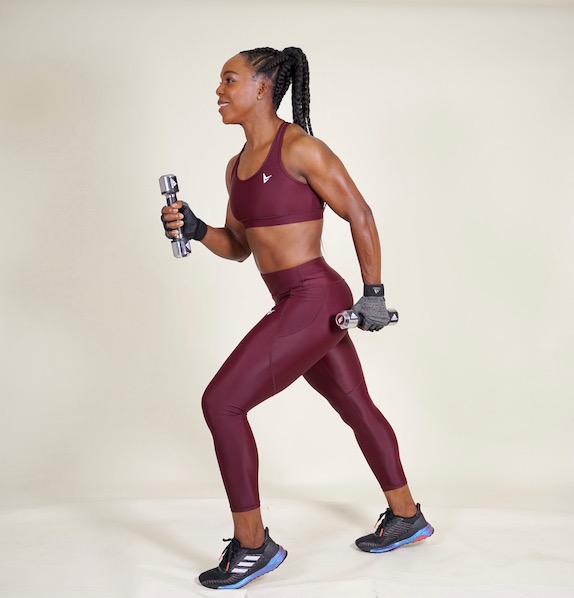Fuel Your Body Like an Elite Athlete: 4 Tips

You do not have to be an elite athlete, you do not need to be preparing for a major sporting event, like the Olympic Games to fuel your body like an elite caliber athlete. Having the right balance and variety of healthy foods will help you maximize each workout and have more energy throughout the day.
Whether you are starting a workout program, planning to start one or, you are an avid athlete, these four tips will ensure that you are fueling your body to optimize your workouts and have sustained energy.
1. Eat Adequate Macronutrients
The three macronutrients that are fundamental for fueling and energizing the cells in our bodies are:
- Carbohydrates
- Proteins
- Fats
These three macronutrients worked together to provide the nutrients our bodies need to perform optimally.
Carbohydrates
Carbohydrates are the main fuel source for the body and brain. Foods that are high in carbohydrates support our muscles, fuel our bodies and help optimize physical activities. We experience an increase in energy when carbohydrates are converted to glucose. Healthy carbohydrates includes whole grains, vegetables and fruits. Other carbohydrate rich foods are potatoes, pasta, rice, bread, grains and legumes.
Proteins
Protein is the building block for the body and is found in our muscles, skin, bones, tissues and hair. Protein is essential for repairing and rebuilding the body at the cellular level. Some of the benefits protein provides includes muscle development, improve body composition, improve immune functionality, strengthen muscle tissue connectivity and promote recovery from exercise and injury. The main sources of protein are meat, such as poultry and fish, egg, legumes, nuts, dairy products, tofu and soy products.
Fats
Fat is a great source of energy, it contributes to cell growth and also help with the absorption of some nutrients. In addition, “good fats” provide a protective mechanism for our organs and help our bodies stay warm.
There are two types of “good fats:”
- Monounsaturated fats
- Polyunsaturated fats
Monounsaturated Fats
Some good sources of monounsaturated fats include: avocados, olive oil, peanut oil, sunflower oil, canola oil and most nuts. Research found that monounsaturated fats can help reduce the risk of heart disease, reduce inflammation in the body and also contribute to weight loss.
Polyunsaturated Fats
Plant-based oils such as corn oil, soybean oil and sunflower oil are high in polyunsaturated fats. Other sources of polyunsaturated fats include nuts, like walnuts and sunflower seeds, salmon and other fatty fish. Polyunsaturated fats are required for normal body functions, since our bodies do not produce these fats, we have to get them from food.
Eating moderate quantity of monounsaturated and polyunsaturated fats in place of saturated and of trans fats provides better health benefits.
2. Eat Your Fruits and Vegetables
Research shown that daily fruits and vegetables consumption can promote longer life, lower blood pressure, reduces heart disease, prevents some types of cancer, and helps promote weight loss.
The daily recommended intake of fruits and vegetables is 5 servings. One serving of fruits and vegetables is equivalent to about 4 to 6 ounces. To ensure you acquire the appropriate daily servings, include your fruits and or vegetables with each meal and snack. For example, you can have one serving of fruits and or vegetable with breakfast, two serving with lunch and three servings with dinner and snacks.
The idea is to eat a variety of fruits and vegetables, such as blueberries, bell peppers, broccoli and green leafy vegetables like spinach and kale.
3. Hydrate Well
Staying hydrated with pure water is advantageous to your health, body function, and energy level. The body is made up of approximately 60 percent water, so hydrating throughout the day is crucial for optimal functioning. The muscles, brain, heart and kidneys function more efficient through proper hydration.
Proper hydration also support joints lubrication, boost the immune system, regulate the body temperature and help with the transportation of oxygen throughout the body. Additionally, hydration aids skin health and appearance and helps maintain weight through calories control. It is recommended that we consume two liters or half gallon of water each day.
Pure water is the best fuel for hydrating the body, eliminate or reduce the intake of sugary drinks. When drinking tea, coffee, electrolyte drink, vegetable or natural juice juices, do so without added sugar.
4. Make Time for Rest and Recovery
Rest is important to give the body time to recover from workouts, repair and strengthen itself. Physical rest contributes to psychological rest and allow the body and mind to adapt and recoup from the stress associated with exercise. Adequate hours of sleep, at least eight hours each night and at least twenty minutes nap per day are also crucial in aiding recovery and heighten the benefit of our workouts.
Summary
The body can be fueled and energized by eating healthy macronutrients, quality carbohydrates, proteins and “good fats.” By consuming a variety of fruits and vegetables, your body will receive the nutrients and antioxidants that are necessary to support healthy body function and fight against diseases. Also, proper hydration is essential for optimal functioning of our cells, muscles and organs and help to lubricate the joint, boost the immune system, regulate the body temperature and transport oxygen throughout the body.
Join our newsletter at vcbfit.com and stay updated with new product releases, special offers and insightful information.
Written by: Veronica Campbell Brown
Veronica is a multiple Olympics and World Championships gold medalist in the sport of Track and Field. As the owner of VCB FIT, Veronica and her team are committed to providing customers with innovative activewear clothes and insightful information to help them live their best life.











